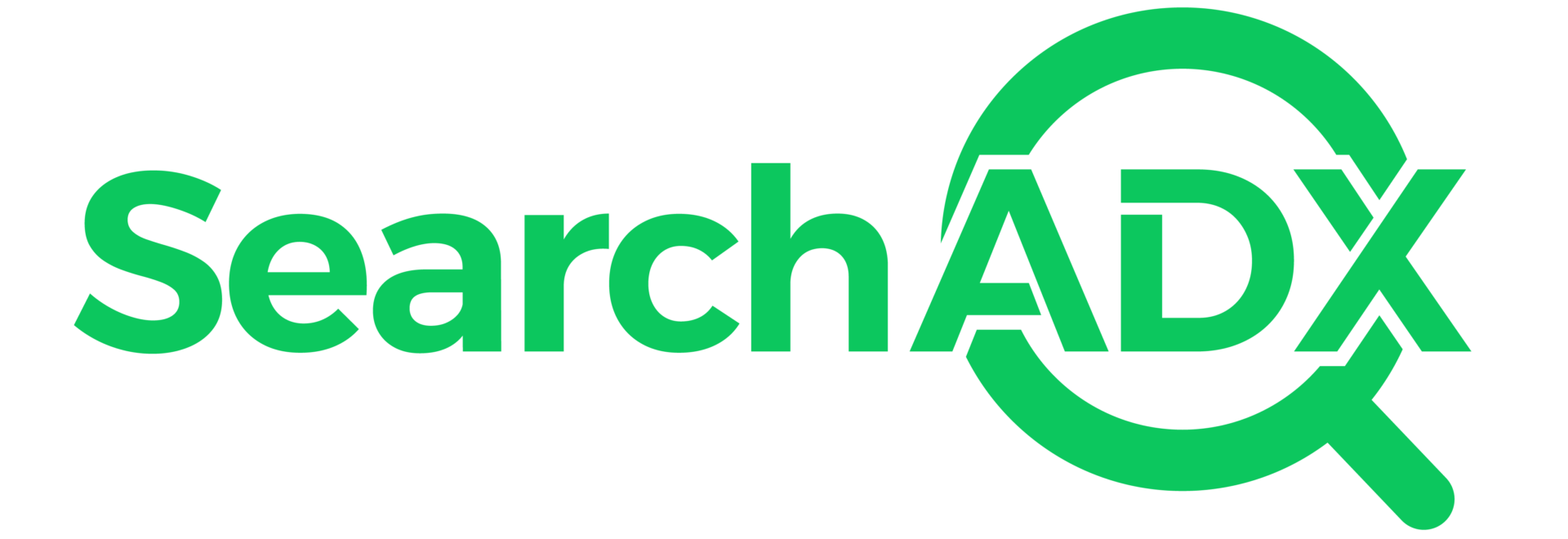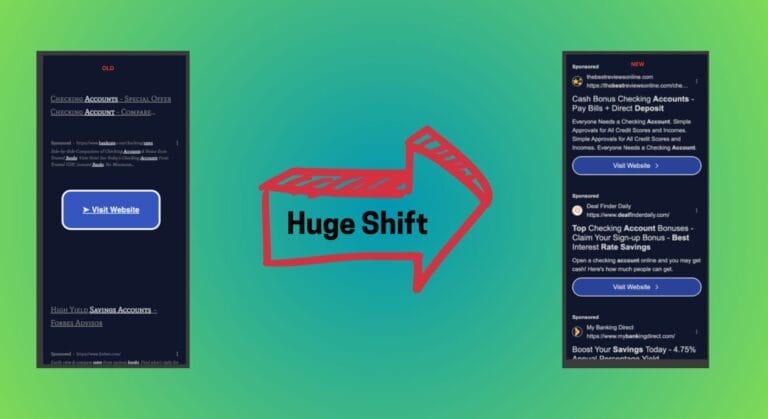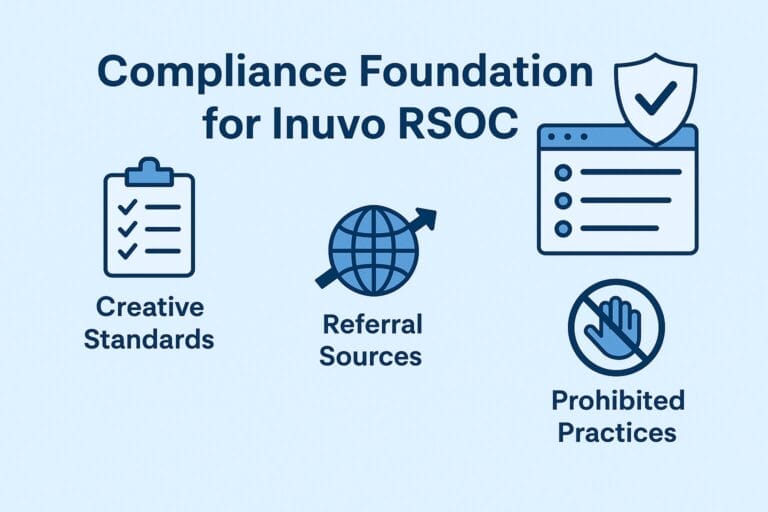Search arbitrage has emerged as one of the most profitable online business models, allowing smart entrepreneurs to generate substantial income by strategically buying and selling traffic. If you’ve ever wondered “what is search arbitrage?” and how it works, this comprehensive guide will walk you through everything you need to know to get started and succeed in 2025.
Search arbitrage is a digital marketing strategy where you purchase traffic from various advertising platforms (like Facebook, TikTok, Taboola, or native ad networks) at a lower cost and redirect it to specialized search feeds where sponsored ads appear. When users click on these ads, you earn revenue. The profit comes from the difference between what you pay for traffic and what you earn from the clicks.
How Search Arbitrage Works: The Simple Explanation
Let me break down search arbitrage with a simple example:
Imagine you’re getting one person from Facebook to visit a search feed, and this costs you $0.12. When that person clicks on the ads displayed on the feed, you earn $0.15. Your profit is $0.03 per visitor.
While this might seem like a small margin, when scaled properly, these small profits can add up to significant income. The key is volume, optimization, and understanding the intricacies of the business model.
Important Note: This business model isn’t as simple as it sounds. There are numerous complexities, challenges, and requirements that beginners need to understand before diving in.
Understanding Search Arbitrage Flow Types
One of the most critical concepts in search arbitrage is understanding the different “flows” – the path users take from your initial ad to the final monetized result. There are two primary types:
1-Click Flow

In a 1-click flow, visitors land directly on a page where ads appear immediately. When they click on these ads, they’re taken straight to the advertiser’s landing page. This flow typically offers:
- Higher conversion rates due to fewer steps
- Lower revenue per click compared to 2-click flows
- Simpler user experience with immediate results
- Better for mobile traffic where attention spans are shorter
2-Click Flow

In a 2-click flow, visitors first land on a page displaying relevant keywords. When they click on any keyword, they’re taken to a search results page with monetized ads. This approach generally provides:
- Higher revenue per click due to increased user intent
- Better keyword targeting and user segmentation
- More optimization opportunities for different keywords
- Enhanced user engagement through relevant content
Best Traffic Sources for Search Arbitrage
Success in search arbitrage heavily depends on choosing the right traffic sources. Here are the most effective platforms currently being used:
Native Advertising Networks
- Taboola – Premium native advertising with high-quality traffic
- Outbrain – Content discovery platform with engaged audiences
- MGID – Global native advertising network with competitive rates
- RevContent – High-quality native ads with strict quality standards
Social Media Platforms
- Facebook/Meta – Massive scale and detailed targeting options
- TikTok – Growing platform with engaged, younger demographics
- Snapchat – Mobile-first platform with high engagement rates
Other Effective Sources
- Google Display Network – Extensive reach across websites and apps
- Bing Ads – Often lower competition and costs than Google
- Push Notification Networks – High volume but requires careful quality management
Quality Matters: Not all traffic sources are equal. The key is finding platforms that provide high-quality, engaged users who are likely to interact with your search feeds.
Major Search Feed Providers

The search arbitrage industry has grown significantly, but the core search feed providers have remained relatively stable. Here are the main players:
Tier 1 Providers
- System1 – One of the largest and most established providers
- Tonic – German-based provider known for quality and reliability
- Domain Active – Focused on premium domain traffic monetization
Tier 2 Providers
- Ads.com (formerly Bodis) – Established provider with global reach
- Sedo – Domain marketplace with search monetization options
- Media.net – Yahoo-powered search network
- ExploreAds – Growing provider with competitive rates
- CodeFuel – Technology-focused search solutions
Getting Access: Gaining approval with these providers isn’t easy. Most require strong marketing credentials, significant ad spend history, or referrals from existing partners. This represents one of the biggest barriers to entry in search arbitrage.
The Evolution: AFD vs RSOC
The search arbitrage industry is undergoing a major transformation in 2025, with a shift from traditional AFD (AdSense for Domains) to RSOC (Related Search on Content) models.
AFD (AdSense for Domains) – Traditional Model
How it works: Traffic is directed to parked domains that display search results and sponsored links.
Advantages:
- Simpler setup and management
- Established revenue models
- Clear separation between content and ads
Challenges in 2025:
- Google policy changes requiring manual opt-in
- Reduced advertiser budgets for parked domains
- Lower user engagement and satisfaction
RSOC (Related Search on Content) – The Future
How it works: Search feeds are integrated directly into valuable content pages, creating a more natural user experience.
Advantages:
- Better user experience and engagement
- Higher revenue per click potential
- Compliance with Google’s content quality guidelines
- Multiple monetization opportunities (ads, affiliate, AdSense)
Requirements:
- Content creation and management
- More complex tracking setup
- Higher initial investment
Can You Really Make Money with Search Arbitrage?
Yes, search arbitrage is a proven method of making money online. Here’s the reality based on industry data and real-world experience:
Our Company’s Results
As one of the leading search arbitrage companies, we’ve invested over $1.6 million in the past 90 days alone. This level of investment demonstrates the viability and profitability of the business model when executed correctly.
Realistic Profit Expectations
- Beginner Level: $500-$2,000 per month profit (after 3-6 months of learning)
- Intermediate Level: $5,000-$15,000 per month profit
- Advanced Level: $25,000-$100,000+ per month profit
- Enterprise Level: Multiple six-figure monthly revenues
Success Factors
Traffic Quality is paramount. Low-quality traffic sources like pop-unders or incentivized traffic can quickly get you banned from feed providers.
Tracking and Analytics are essential. You need sophisticated tracking systems to monitor campaigns, costs, revenue, and ROI in real-time.
Compliance with platform policies ensures long-term sustainability and prevents account bans.
How to Start a Search Arbitrage Business
Getting started in search arbitrage requires careful planning and execution. Here’s a simplified roadmap:
Step 1: Secure Search Feed Access
This is often the most challenging step. Most providers require:
- Proven marketing experience and ad spend history
- Professional business setup (LLC, business bank accounts)
- Industry connections or referrals
- Demonstration of traffic quality capabilities
Step 2: Set Up Traffic Sources
- Create accounts with native advertising platforms
- Set up Facebook/Meta advertising accounts
- Ensure compliance with each platform’s policies
- Start with smaller budgets for testing
Step 3: Implement Tracking Infrastructure
Professional tracking is non-negotiable. Popular options include:
- ClickFlare – Specialized for search arbitrage with direct integrations
- Voluum – Enterprise-level tracking with advanced features
- RedTrack – Comprehensive tracking with good search feed support
Step 4: Research Trending Topics
Use tools like Anstrex to research what’s currently working in the market. Look for:
- High-converting ad creatives
- Popular verticals and niches
- Successful campaign structures
- Compliance-friendly approaches
Step 5: Create and Test Campaigns
- Start with proven verticals (health, finance, insurance)
- Create compelling but compliant ad creatives
- Test different traffic sources and flows
- Monitor performance and optimize continuously
Budget Requirements for Search Arbitrage
One of the most common questions is: “How much money do I need to start?”
Minimum Viable Budget
Based on industry experience, here are realistic budget requirements:
- Absolute Minimum: $5,000-$10,000 for basic testing
- Recommended Starting Budget: $25,000-$50,000
- Professional Level: $100,000-$250,000
- Enterprise Scale: $500,000-$2,500,000
Why Substantial Budgets Are Necessary
- Testing Phase: You’ll need to test multiple campaigns, creatives, and traffic sources
- Learning Curve: Initial campaigns often don’t profit as you learn optimization
- Cash Flow: Search feeds typically pay NET 30-45 days
- Scale Requirements: Profitability often comes at scale
High-Performing Verticals in 2025
Certain niches consistently perform well in search arbitrage:
Evergreen High-Performers
- Health & Wellness – Insurance, treatments, supplements
- Financial Services – Loans, credit cards, insurance
- Home & Property – Insurance, mortgages, home improvement
- Legal Services – Personal injury, bankruptcy, criminal defense
- Business Services – Software, consulting, professional services
Emerging Opportunities
- Technology – Software solutions, cybersecurity
- Sustainability – Solar panels, energy efficiency
- Senior Services – Healthcare, housing, financial planning
- Education – Online courses, certifications
Advanced Optimization Strategies
Keyword Research and Selection
Successful search arbitrage requires strategic keyword selection:
- High Commercial Intent: Focus on keywords indicating buying readiness
- Local Variations: Test geographic modifiers for better targeting
- Long-tail Keywords: Often more profitable with less competition
- Seasonal Trends: Adjust campaigns based on seasonal demand
Creative Optimization
- A/B Test Everything: Headlines, images, calls-to-action
- Native Feel: Make ads blend with the platform’s content
- Emotional Triggers: Use psychology to improve click-through rates
- Compliance First: Ensure all creatives meet platform guidelines
Traffic Quality Management
- Bounce Rate Monitoring: High bounce rates indicate poor traffic quality
- Engagement Metrics: Track time on site and pages per session
- Conversion Rate Optimization: Improve the user journey
- Fraud Prevention: Implement measures to detect and prevent click fraud
Challenges and Risks in Search Arbitrage
Common Challenges
- Platform Policy Changes: Google and social platforms frequently update policies
- Account Bans: Compliance violations can result in account suspension
- Competition: Increased competition can drive up traffic costs
- Payment Delays: NET 30-45 payment terms require significant cash flow
Risk Mitigation Strategies
- Diversification: Use multiple traffic sources and search feeds
- Compliance Focus: Stay updated on policy changes
- Financial Planning: Maintain adequate cash reserves
- Relationship Building: Develop strong partnerships with providers
Tools and Technologies for Success
Essential Software Stack
- Tracking Platforms: ClickFlare, Voluum, RedTrack
- Automation Tools: TheOptimizer, Maximizer
- Research Tools: Anstrex, SEMrush, Ahrefs
- Creative Tools: Canva, Adobe Creative Suite
- Analytics: Google Analytics, platform-specific dashboards
Advanced Technologies
- AI-Powered Optimization: Machine learning for bid management
- Real-Time Analytics: Instant performance monitoring
- Automated Rule Sets: Pause/activate campaigns based on performance
- Cross-Platform Attribution: Track users across multiple touchpoints
Future of Search Arbitrage in 2025 and Beyond
Industry Trends
- RSOC Adoption: Continued shift toward content-integrated search feeds
- AI Integration: More sophisticated optimization and targeting
- Mobile-First: Increasing focus on mobile user experience
- Quality Requirements: Higher standards for traffic and content quality
Opportunities
- Emerging Markets: Growth in international opportunities
- New Platforms: TikTok, Snapchat, and other emerging channels
- Voice Search: Integration with voice-activated devices
- Connected TV: Expansion into streaming and smart TV advertising
Learning Resources and Education
Getting Educated
Success in search arbitrage requires continuous learning. Here are valuable resources:
- Industry Conferences: Affiliate World, AWE, AWD
- Online Communities: STM Forum, AffiliateFix
- Courses and Training: Specialized search arbitrage programs
- Mentorship: Learn from experienced practitioners
Staying Updated
- Industry Publications: Follow affiliate marketing news sites
- Platform Updates: Subscribe to official announcements
- Networking: Build relationships with other arbitrageurs
- Testing: Continuously test new approaches and technologies
Conclusion: Is Search Arbitrage Right for You?
Search arbitrage represents one of the most scalable and profitable online business models available today. However, it’s not suitable for everyone. Success requires:
- Significant Capital: Substantial budgets for testing and scaling
- Technical Skills: Understanding of tracking, analytics, and optimization
- Risk Tolerance: Ability to handle volatility and potential losses
- Persistence: Willingness to continuously test and optimize
- Compliance Focus: Commitment to following platform policies
If you have these qualities and the necessary resources, search arbitrage can provide substantial returns and the potential for building a truly scalable online business.
The industry continues to evolve rapidly, with the shift toward RSOC models and increased emphasis on quality creating new opportunities for sophisticated operators. Those who can adapt to these changes while maintaining high standards for traffic quality and user experience will be best positioned for long-term success.
Ready to learn more? Start by researching the major search feed providers, understanding their requirements, and building the foundational knowledge needed to succeed in this dynamic industry.
Search arbitrage offers tremendous opportunities for those willing to invest the time, money, and effort required to master this sophisticated business model. The key is starting with realistic expectations, adequate capital, and a commitment to continuous learning and optimization.



